SUPPORTING FARMERS TO COMPLY WITH OUR ZERO TOLERANCE TO CHILD LABOR
When seeking to eradicate child labor, we believe that actions must focus on education and remediation. Nespresso’s zero tolerance for child labor has been a critical pre-requisite of our AAA Sustainable Quality™ Program since its creation in 2003.
The prohibition of child labor is a key component of the Nespresso AAA Sustainable Quality™ Program, which was developed in cooperation with the independent internationally recognized NGO, the Rainforest Alliance, in compliance with the International Labour Organisation (ILO) standards.
Coffee farmers must comply with our zero tolerance to child labor as a pre-requisite in order to join our AAA Sustainable Quality™ Program. If a farmer fails to comply with this critical criterion, he will not be able to join our AAA Program. If a farmer fails to keep the compliance with this criterion, we will not buy coffee from this farm until they can demonstrate that the standard is respected, and they once again comply with ILO standards and local law. We will support them in that endeavor as we believe that plain exclusion will not help remedy the problem of child labor.
Nespresso has been developing a specific integrated and long-term approach to protecting children in coffee producing regions since 2018. Two priorities have been identified to prevent and eliminate child labor from our supply chain:
- Reinforce child labor prevention, monitoring and identification of cases
- Remediate root causes in high risk countries
As part of this work, policies and processes to address child labor were strengthened, and a response guide to protecting children in coffee farming has been developed to support agronomists and other Nespresso’s staff. A tailored-training program was designed and deployed in Central America to boost agronomists’ capacities in dealing with the prevention and potential management of child labor occurrences. We also run dedicated awareness sessions on the risks of child labor for cooperatives and farmers, in addition to the education and training that is already provided as part of the Nespresso AAA Sustainable Quality™ Program globally.
We tackle poverty reduction by improving farmers’ livelihoods by paying price premiums for the coffee we buy and working with them to implement good farming practices and cost reductions to improve the productivity of their farms. We also created safe places for children in large farms during harvest, while their parents work in the farm in the Huehuetenango region of Guatemala.

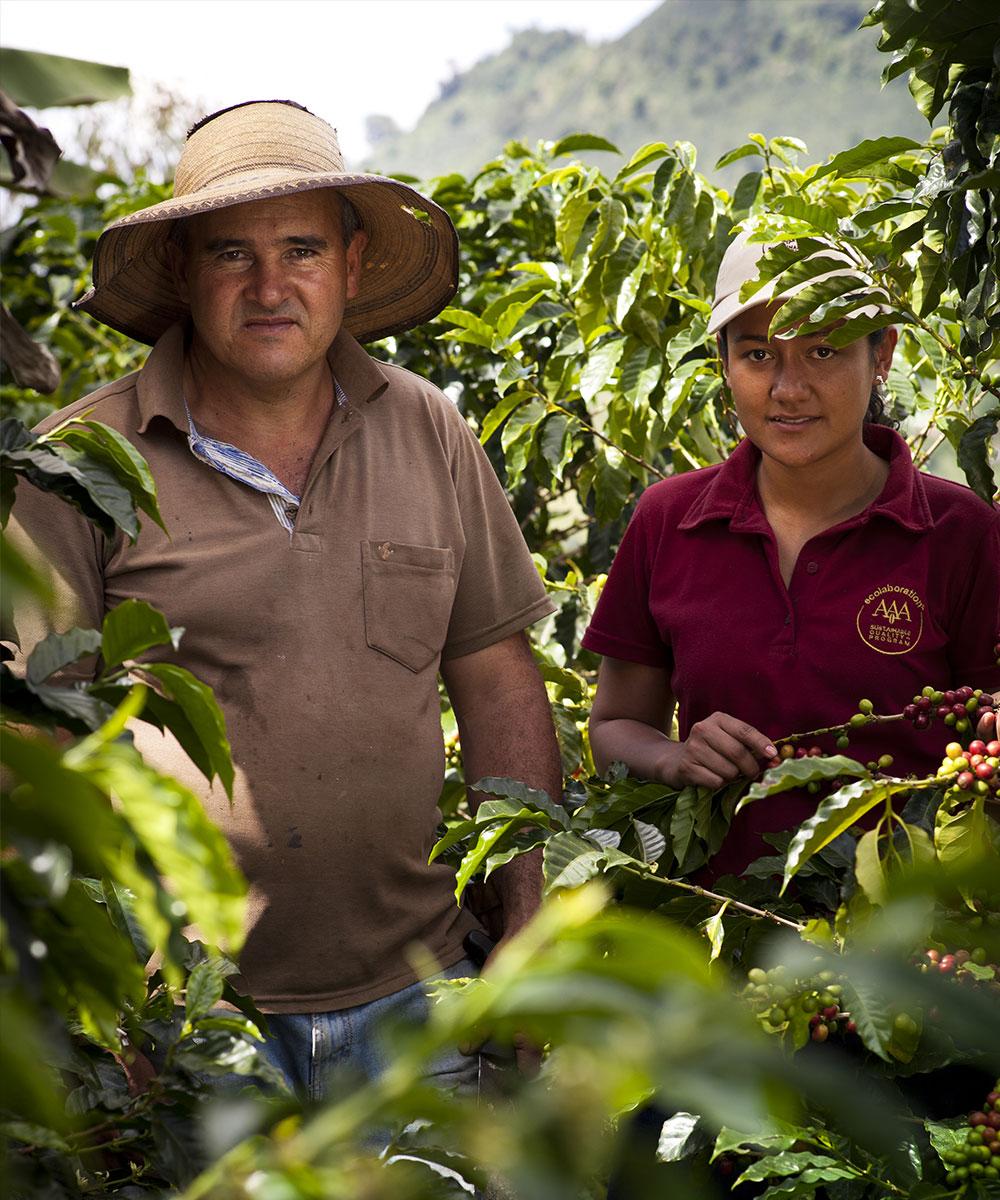
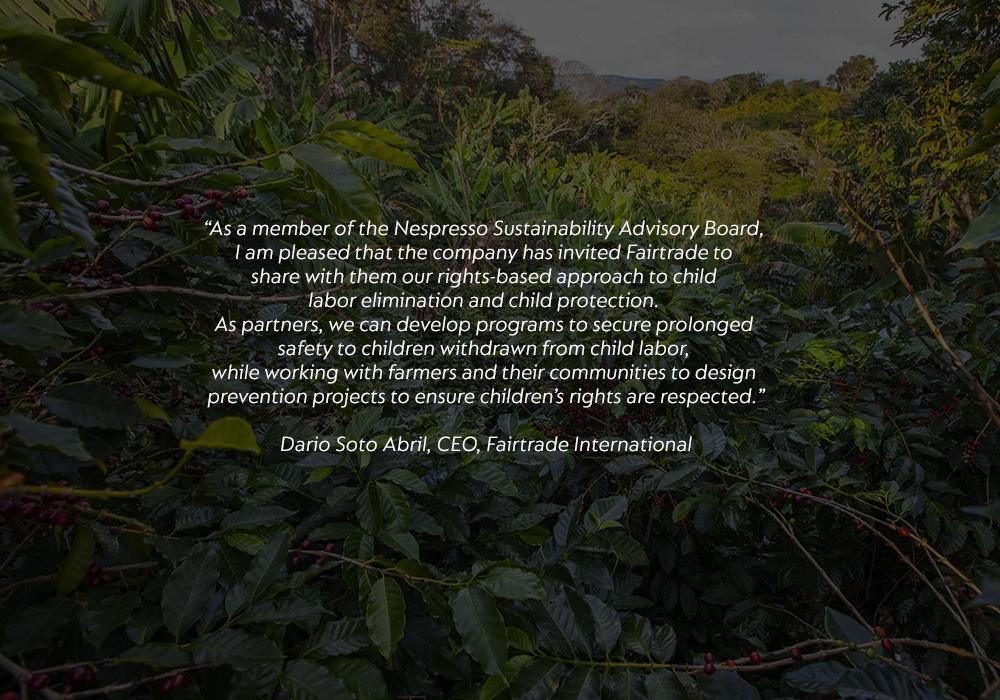
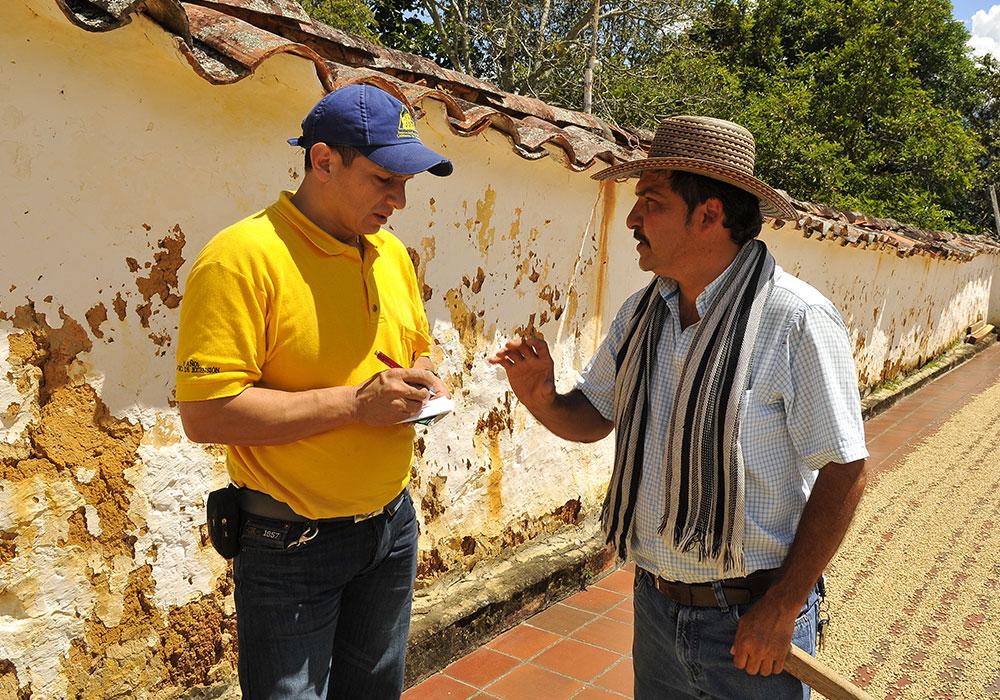
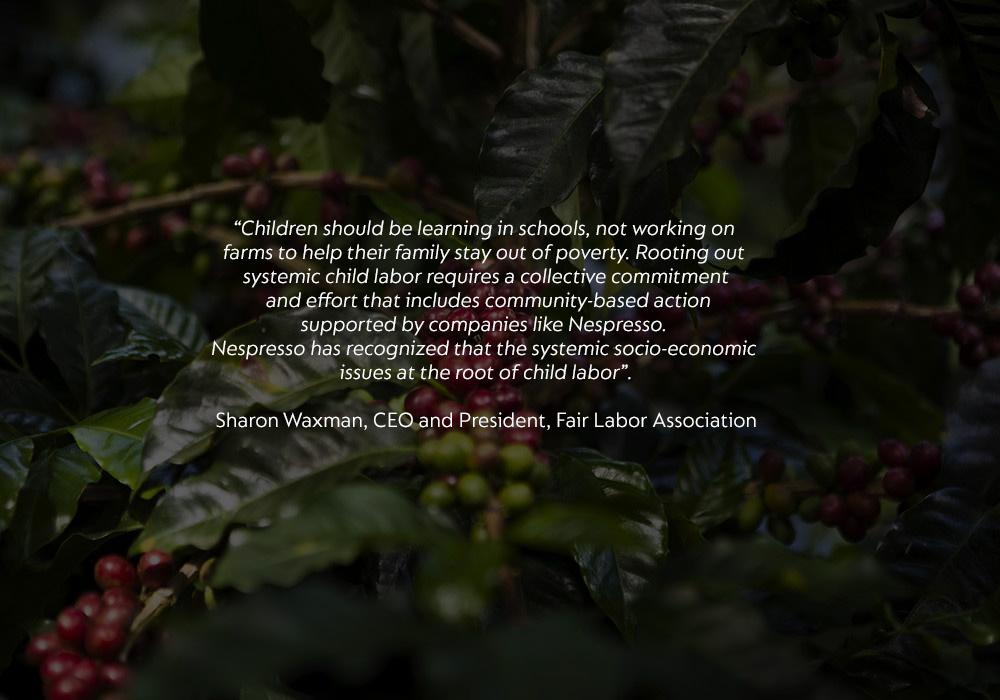
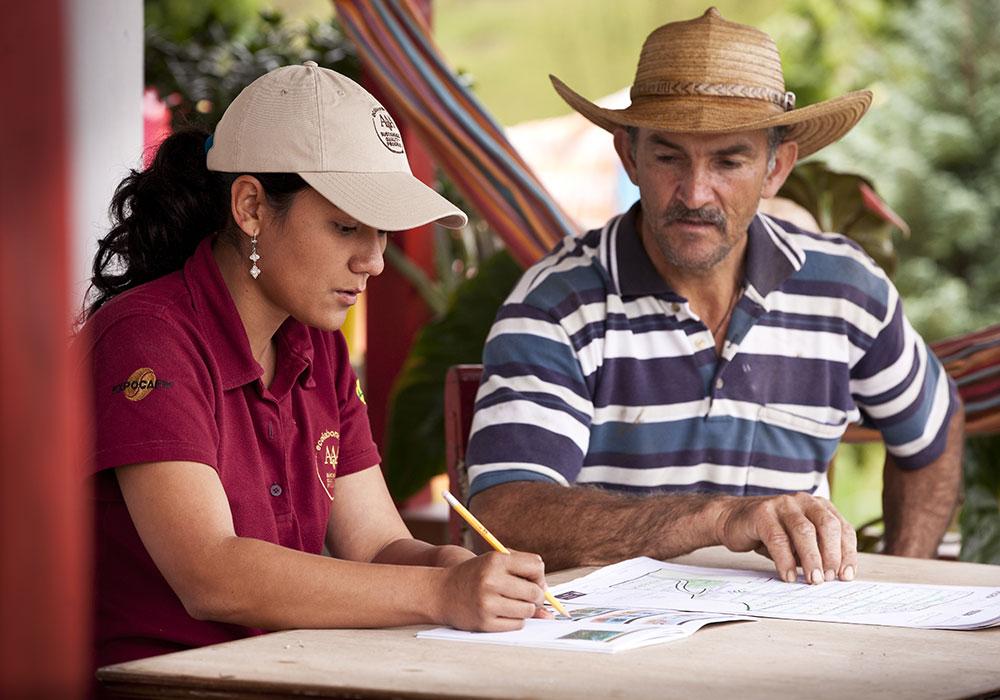
 PLAY VIDEO
PLAY VIDEO